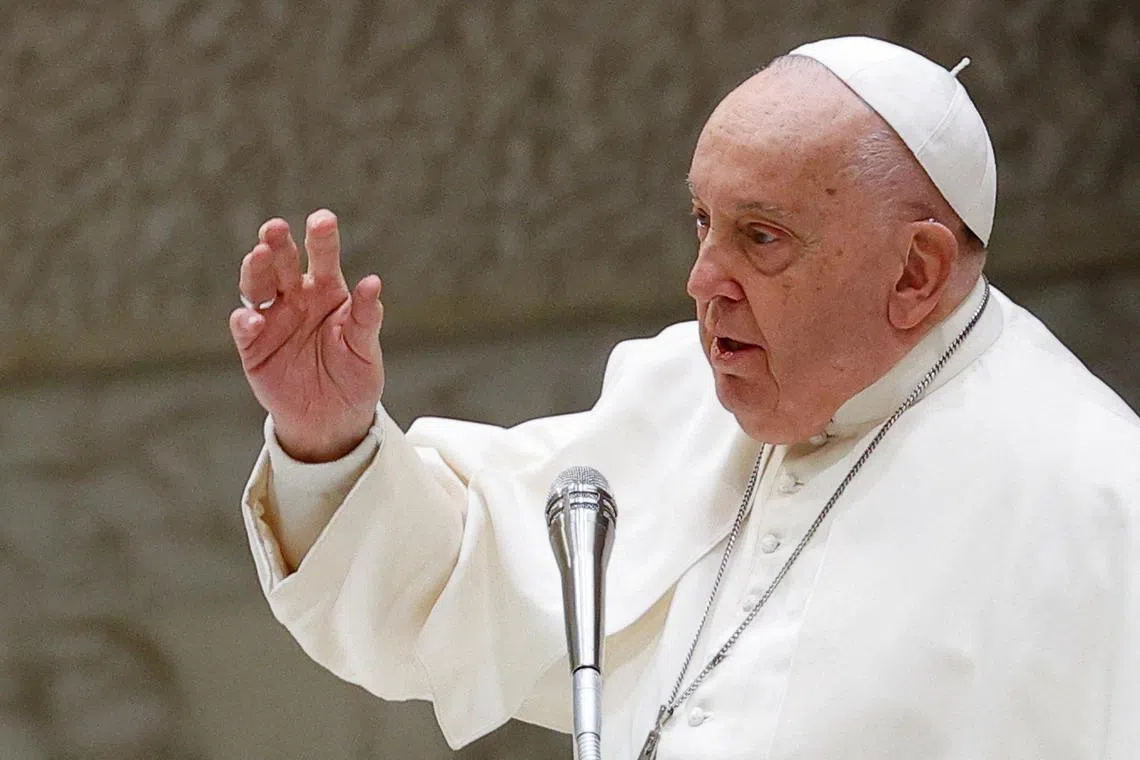Pope Francis, ramping up criticism of Israel, calls situation in Gaza ‘shameful’
Sign up now: Get ST's newsletters delivered to your inbox

Pope Francis appeared to reference deaths caused by the winter cold in Gaza.
PHOTO: REUTERS
VATICAN CITY - Pope Francis on Jan 9 stepped up his recent criticisms of Israel’s military campaign in Gaza
In a yearly address to diplomats delivered on his behalf by an aide, he appeared to reference deaths caused by the winter cold in Gaza, where there is almost no electricity.
“We cannot in any way accept the bombing of civilians,” the text said.
“We cannot accept that children are freezing to death because hospitals have been destroyed or a country’s energy network has been hit.”
The Pope, 88, was present for the address but asked an aide to read it for him as he is recovering from a cold.
The Pope also condemned anti-Semitism, called for an end to the war in Ukraine and other conflicts around the world, and expressed concern over climate change.
The comments were part of an address to Vatican-accredited envoys from some 184 countries that is sometimes called the Pope’s “state of the world” speech.
The Israeli ambassador to the Holy See was among those present for the event.
Pope Francis, leader of the 1.4 billion-member Roman Catholic Church, is usually careful about taking sides in conflicts.
But he has recently been more outspoken about Israel’s military campaign against Palestinian militant group Hamas and has suggested the global community should study whether the offensive constitutes a genocide of the Palestinian people.
An Israeli government minister publicly denounced the pontiff in December for that suggestion.
The Pope’s text said he condemns anti-Semitism and called the growth of anti-Semitic groups “a source of deep concern”.
Pope Francis also called for an end to the war between Ukraine and Russia, which has killed tens of thousands.
“My wish for the year 2025 is that the entire international community will work above all to end the conflict that, for almost three years now, has caused so much bloodshed,” he said.
He also addressed conflicts in places including Sudan, Mozambique, Myanmar, and Nicaragua and reiterated his frequent calls for action to confront the impacts of global climate change and the spread of misinformation on social media. REUTERS


